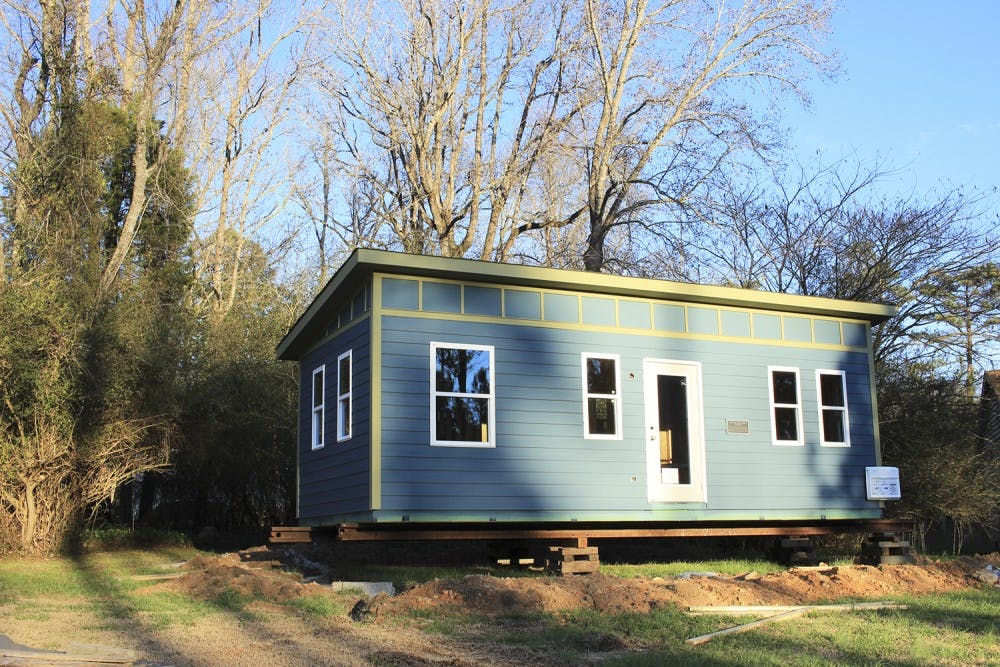Tiny homes are becoming a viable housing option for homeless people with mental illness.
The UNC Center for Excellence in Community Mental Health, in collaboration with The Farm at Penny Lane, ? is in the process of building a tiny home community to help mentally ill homeless people receive housing and therapy at an affordable price.
The project is currently in its first phase and the first participant will move into the project's first tiny home in the spring on a trial basis. The research participant will live in the home and receive therapy based on the farm’s principles of a holistic and sustainable approach to bettering the lives of those with mental illness.
Rebecca Sorensen, community development consultant of The Farm at Penny Lane and recent master's graduate of UNC, helms the project. In an email, Sorensen said research participants will come from clients currently being served by the UNC Center for Excellence in Community Mental Health.
“An interdisciplinary research team made up of faculty and students from the School of Social Work, the School of Occupational Sciences and the School of Journalism are studying the viability of this housing model for individuals diagnosed with mental illness,” Sorensen said in an email.
Chatham Habit for Humanity is a community partner with the Tiny Home Community Collaborative, assisting the collaborative with finding a contractor to build the tiny home. The contractors donated their labor and Chatham Habitat for Humanity provided building advice.
“The goal of the farm is to serve those with disabilities and provide them with a home,” Anna Spears, development director at Chatham Habit for Humanity said.
She said the farm wants to build a total of 10 homes by the end of Phase III. The rent for the tiny homes would be $250 per month and include the cost of utilities.
The collaborative is reaching out to the community, asking for volunteers to help them with funding, as well as spreading the word about mental health issues among the homeless population in North Carolina.




